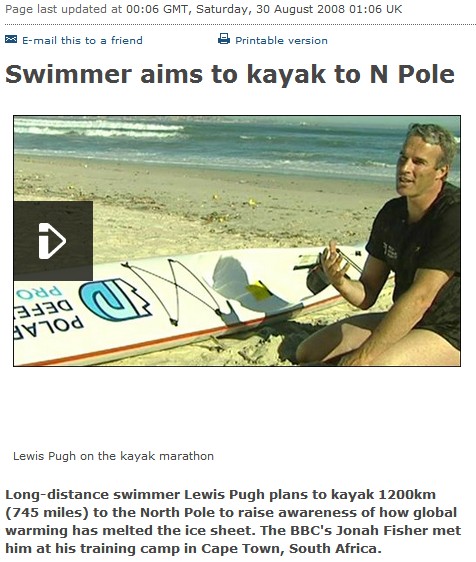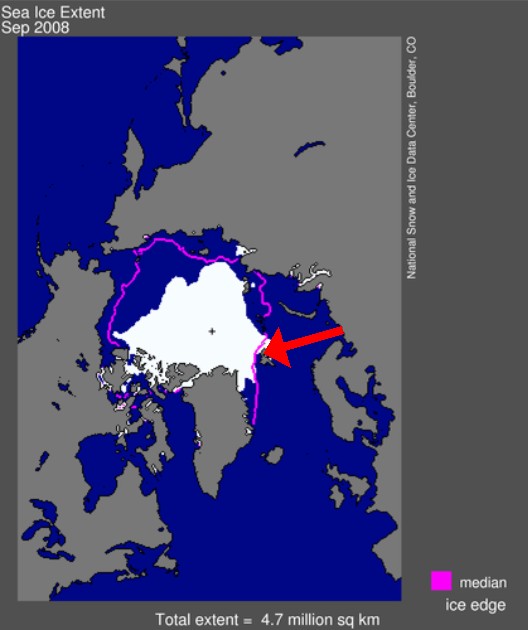In 2008, Mark Serreze forecast an ice-free North Pole. This inspired Lewis Pugh to kayak there. His trip ended when he hit ice further away from the pole than the normal extent line for September.
Disrupting the Borg is expensive and time consuming!
Google Search
-
Recent Posts
- Analyzing The Western Water Crisis
- Gaslighting 1924
- “Why Do You Resist?”
- Climate Attribution Model
- Fact Checking NASA
- Fact Checking Grok
- Fact Checking The New York Times
- New Visitech Features
- Ice-Free Arctic By 2014
- Debt-Free US Treasury Forecast
- Analyzing Big City Crime (Part 2)
- Analyzing Big City Crime
- UK Migration Caused By Global Warming
- Climate Attribution In Greece
- “Brown: ’50 days to save world'”
- The Catastrophic Influence of Bovine Methane Emissions on Extraterrestrial Climate Patterns
- Posting On X
- Seventeen Years Of Fun
- The Importance Of Good Tools
- Temperature Shifts At Blue Hill, MA
- CO2²
- Time Of Observation Bias
- Climate Scamming For Profit
- Climate Scamming For Profit
- Back To The Future
Recent Comments
- Gordon Vigurs on Analyzing The Western Water Crisis
- Bob G on Analyzing The Western Water Crisis
- Bob G on Analyzing The Western Water Crisis
- Bob G on Analyzing The Western Water Crisis
- Mike Peinsipp on Analyzing The Western Water Crisis
- Bob G on Analyzing The Western Water Crisis
- Bob G on Analyzing The Western Water Crisis
- Robertvd on Analyzing The Western Water Crisis
- Bob G on Analyzing The Western Water Crisis
- conrad ziefle on Analyzing The Western Water Crisis




I still don’t see a downside if all the Arctic ice melted anyway. Why does the media assume this is bad? I see increased economic activity like trade routes and recovery of natural resources.
Until some of them get expensively caught up in seasonal ice – eg Nome’s relief oil tanker at the end of last year.
Remember John 9/10ths of an ice burg is underwater, if all the Artic Sea ice melted at worst the water level in the Earth’s oceans would remain exactly where it currently is. That is because ice is water and ice only floats because it expands when it freezes and displaces more sea water than sea ice contains.